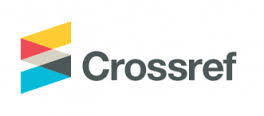استكشاف استخدام تطبيقات الذكاء الاصطناعي من قبل طلبة مساق التربية العملية في جامعة آل البيت لتعزيز ممارساتهم التدريسية
DOI:
https://doi.org/10.59759/educational.v4i2.907الكلمات المفتاحية:
Artificial Intelligence، Pre-Service Teachers، Artificial Intelligence Applications، Educational Curricula، Practical Education Programsالملخص
مع تزايد تأثير الذكاء الاصطناعي على قطاعات متنوعة من المجتمع، فإن دمجه في البيئات التعليمية، وخاصة في الفصول الدراسية لمرحلة ما قبل المدرسة، يثير أسئلة مهمة حول تأثيره على عمليات التدريس والتعلم. ركز هذا البحث على كيفية إعداد دورة تدريبية عملية في جامعة آل البيت للمعلمين قبل الخدمة لاستخدام تطبيقات الذكاء الاصطناعي في فصولهم الدراسية المستقبلية. شمل مجتمع الدراسة 2072 طالبة وكانت عينة الدراسة هي المجتمع بأكمله (2072 طالبة). طوال دورة التدريب العملي، انخرط الطلاب في مجموعة متنوعة من أدوات الذكاء الاصطناعي ذات الصلة بممارسات التدريس. قيمت الدراسة تأثير دورة التدريب العملي على آراء المعلمين قبل الخدمة حول قدرة الذكاء الاصطناعي على تحسين منهجيات التدريس. من خلال تقييم مشاريع الطلاب وعروضهم التقديمية وردود أفعالهم على دورة التدريب العملي، سعى البحث إلى تحديد فعالية دورة التدريب العملي في إعداد المعلمين المستقبليين لدمج الذكاء الاصطناعي بسلاسة في استراتيجياتهم التدريسية. قد تفيد النتائج في تصميم برامج التدريب العملي التي تهدف إلى تزويد المعلمين في المستقبل بالمهارات والمعرفة الأساسية للتكيف مع المشهد التعليمي المتغير الذي شكله الذكاء الاصطناعي.
التنزيلات
المراجع
Belpaeme, T., Kennedy, J., Ramachandran, A., Scassellati, B., & Tanaka, F. (2018). Social robots for education: A review. Science Robotics, 3(21), 595-609.
Ferguson, R. (2012). The state of learning analytics in 2012: A review and future challenges. Knowledge Media Institute, Open University, 1-26.
Ghergulescu, I., Muntean, C. H., & Muntean, G. M. (2019). Investigating teachers' acceptance of an artificial intelligence-based system in education. IEEE Transactions on Learning Technologies, 13(1), 67-78.
Holmes, W., Bialik, M., & Fadel, C. (2019). Artificial Intelligence in Education: Promises and Implications for Teaching and Learning. Center for Curriculum Redesign.
Holstein, K., & McLaren, B. M. (2019). Designing for transparency in AI-infused education: A conceptual framework. Educational Technology Research and Development, 67(1), 1-22.
Holstein, K., McLaren, B. M., & Aleven, V. (2018). Student learning benefits of a mixed-reality teacher awareness tool in AI-enhanced classrooms. Artificial Intelligence in Education, 5(1), 93-102.
Ibáñez, M. B., & Delgado-Kloos, C. (2018). Augmented reality for STEM learning: A systematic review. Computers & Education, 123, 109-123.
Johnson, L., Becker, S. A., Estrada, V., & Freeman, A. (2020). NMC Horizon Report: 2020 Higher Education Edition. The New Media Consortium.
Lokken, J. (2017). Experiential learning and AI: Exploring new pathways to engage students. Journal of Educational Technology, 14(3), 27-35. https://doi.org/10.14434/jet.v14i3.12345
Luckin, R. (2017). Enhancing Learning and Teaching with Technology: What the Research Says. UCL Institute of Education Press.
Luckin, R., Holmes, W., Griffiths, M., & Forcier, L. B. (2016). Intelligence unleashed: An argument for AI in education. Pearson Education. https://www.pearson.com/content/dam/one-dot-com/one-dot-com/global/Files/news/news-annoucements/2016/Intelligence-Unleashed-Publication.pdf
Popenici, S. A. D., & Kerr, S. (2017). Exploring the impact of artificial intelligence on teaching and learning in higher education. Research and Practice in Technology Enhanced Learning, 12(1), 1-13. https://doi.org/10.1186/s41039-017-0062-8
Selwyn, N. (2016). Is technology good for education? Polity Press.
Selwyn, N. (2019). Should Robots Replace Teachers? AI and the Future of Education. Polity Press.
Wang, Y., & Tahir, R. (2020). The effects of using Duolingo in foreign language learning: A systematic review. Computer Assisted Language Learning, 33(8), 901-926.https://doi.org/10.1080/09588221.2019.1648298
Williamson, B., & Eynon, R. (2020). The Datafication of Education: A Critical Approach to Emerging Technologies and Data Practices in Schools. Learning, Media and Technology, 45(1), 3-8.
Zawacki-Richter, O., Marín, VI, Bond, M., & Gouverneur, F. (2019). Systematic review of research on artificial intelligence applications in higher education: Trends and outcomes. International Journal of Educational Technology in Higher Education, 16(1), 1-27.https://doi.org/10.1186/s41239-019-0171-0


